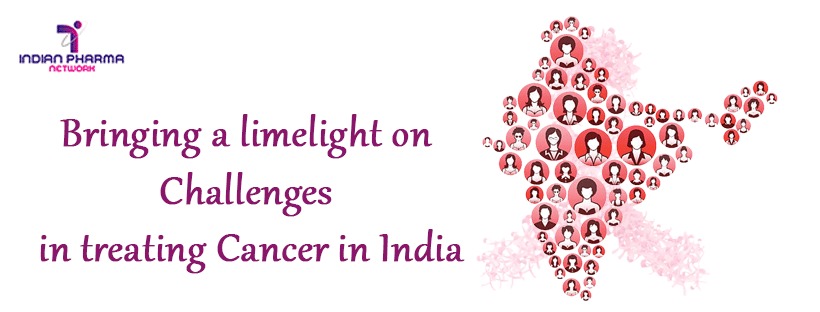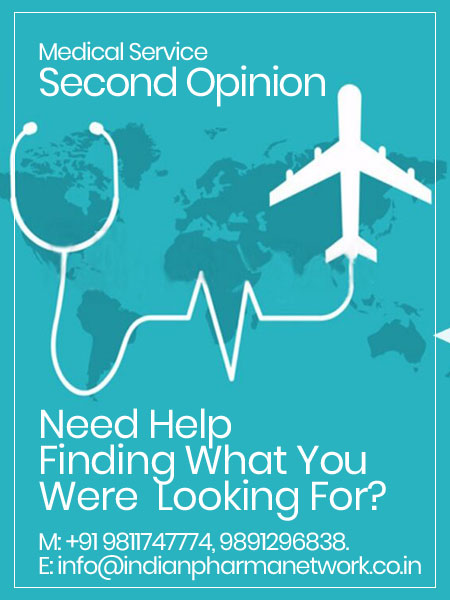Bringing a Limelight on Challenges in treating Cancer in India
With 845 million people occupying 2.5% of Earth’s land mass, India is a vast subcontinent with 15% of world’s population. Consisting of various cultures, habits, languages and many different ethnic groups, Indian people has a very interesting cultural pattern. Experts projects that cancer incidence in India will increase by more than two-thirds over the next 20 years, to approximately 1.7 million new cases per year. Due to a range of economic and social issues, most of India’s patients with cancer first present with advanced disease, adding another layer of complexity for the country’s oncology community.
After cardiac diseases, cancer has emerged as an important cause of morbidity and mortality in India. As the cancer burden is likely to become double in the next 20 years, it is crucial to overcome the challenges that occur in treating cancer in India. For any health-related advice and anti-cancer treatment, reach out to Indian Pharma Network, New Delhi. In this write-up, we will be going to discuss the challenges that oncologists face in treating the cancer in India.
Throwing a Light on Challenges in Cancer Treatments
Degree and Life Patterns of Various Cancers in India
In December 1981, Indian Council of Medical Research commenced National Cancer Registry Program, which acted as a main source of information on cancer incidence and pattern in the country. The top cancer cases consist of lung, head, neck, prostate, oesophagus, breast, ovary, and cervix.
Depending upon the geographical variety, there is a noticeable incidence of cancer in India. These factors may occur due to several factors which include environmental, diet, lifestyle, and grammatical issues. To reduce the incidence of these cancers, people would have to bring change in their lifestyle. There are various specific cancer research programs to focus on the biology of the population present in various states with population-based cancer registries. They will help determine risk factors which are responsible and suggest strategies for prevention.
Delay in Detection
About 75-80 percent of patients have advanced stage, when diagnosed with cancer. The demand for cancer treatment facilities are, therefore very high with poor availability facility. Nearly 50% of patients present late for treatment and therefore appropriate education in prevention and early diagnosis are important factors. The main cause for this is the latest presentation due to low level of awareness in the population and among communities. Some of the problems like lack of screening programmes, lack of diagnostic facilities locally and vast distances to travel to reach a major tertiary cancer centre, financial constraints and stigma associated with the diagnosis.
Nearly 69% population of people in rural areas tends to suffer more where patients and families must travel long distances to reach a tertiary oncology care center. Some incidences are occurred due to lack of places to stay, long time taken for investigations, limited finances, language, and cultural differences are also some of the limitations.
Specialised Cancer Care must be made Affordable and Available
One of the major reasons for not being able to implement screening programs in India has been a lack of workforce- physicians, health workers, technical staff and pathologist to review pathological material. According to the data from randomized trials, simple, innovative methods such as visual inspection-based screening and several other cost-effective screening methods for some common cancers. As the number of screening programs can bring down the incidence of some of the cancers, the Government of India has established several regional cancer centers, and upgrade medical colleges the oncology department in rural areas which will help in early detection of the cancers and will lead to start in early treatment.
Though the central government has recently started a universal health care insurance program called Ayushman Bharat PMJAY in which all eligible citizens can get access to free healthcare, including chemotherapy and supportive medications.
While the Government has permitted use of biosimilar and other generic drugs to be available at a fraction of the cost. We need to focus on diagnostics and invest in modern diagnostic services, such as nuclear medicine, radiology, biopsy, endoscopy and colposcopy.
Progressive Therapies must be explored and encouraged
Apart from the current treatments, including immunotherapy, chemotherapy, radiation therapy and surgery, there are many other options that will transform the way through which we deal with cancer in the future. Targeted therapies and immunotherapies approved by U.S. FDA for various cancer treatments have proven to be the biggest shift in the medical industry. The biggest disappointing factor for the India is that these drugs are not manufactured in India and must be transported through special demands. They are also an expensive buy for the patients. Government and non-government organisations need to take out a way for making it available to everyone as these therapies are quite expensive.
Way Ahead
One of the important tasks would be to develop consensus on key priorities for cancer research in Indian context based on common cancers in males and females in a particular region. Cancer in India is emerging as a major cause of morbidity and mortality. As diffusion and adoption of proven advances in cancer therapy rather than looking for new cures, should be a priority. Priority should also be given to early detection which is crucial for cancer care. Therefore, spreading greater awareness in a country like India will be of great help.
Indian Pharma Network – Dealing with Challenges Confidently
Indian Pharma Network, New Delhi is a strong network connected with international clients and suppliers. The network helps in procurement of all specialty International medicines and treatments for various treatments like cancer and other disorders. These medicines and treatments are not available in Indian and thus, need a particular license and documentation by various health and drug departments. The network also contributes in various medical researches and is also a leading exporter, importer, distributor, and supplier of various pharmaceutical products.
Get in touch with of best pharmaceutical consultants at Indian Pharma Network as we will assist you with the best advice and any medication that you need from any part of the globe.
Visit: https://indianpharmanetwork.co.in/
Or
Call Mr Neeraj Nagpal on 9811747774
Reference Links:
- https://www.oncolifehospitals.com/blog/is-india-truly-equipped-to-beat-the-dreaded-c-or-can-india-win-the-fight-against-cancer-lets-find-out/
- https://www.ijmr.org.in/article.asp?issn=0971-5916;year=2018;volume=148;issue=4;spage=362;epage=365;aul
- https://www.thelancet.com/journals/lanonc/article/PIIS1470-2045(20)30312-0/fulltext
- https://pubmed.ncbi.nlm.nih.gov/1514827/


